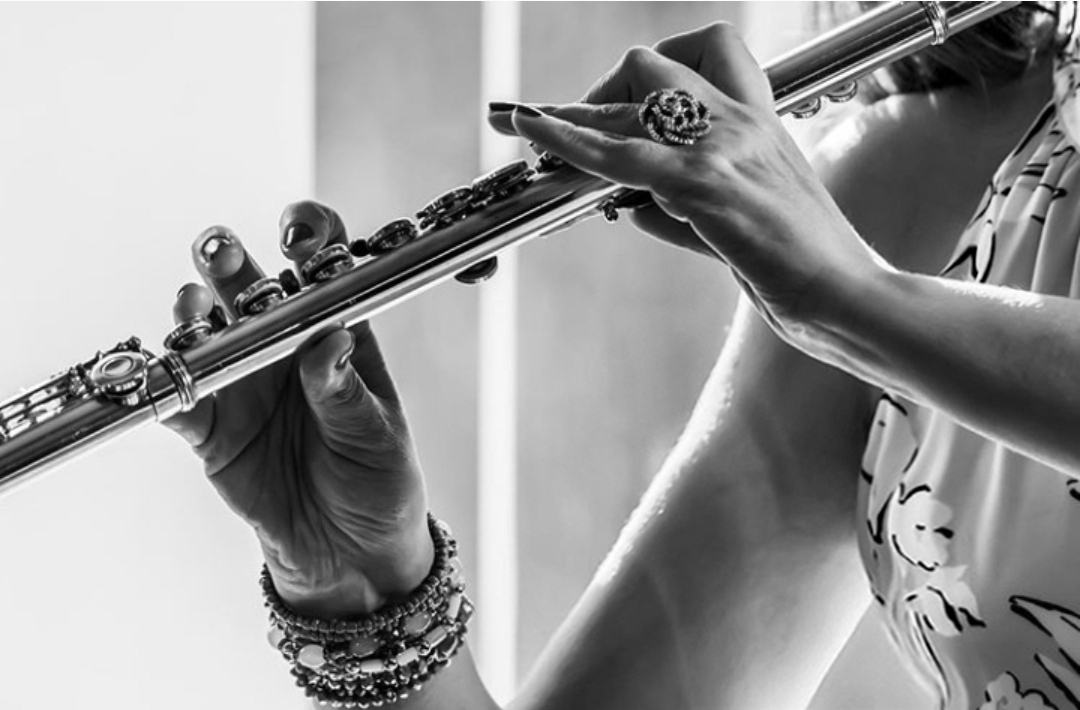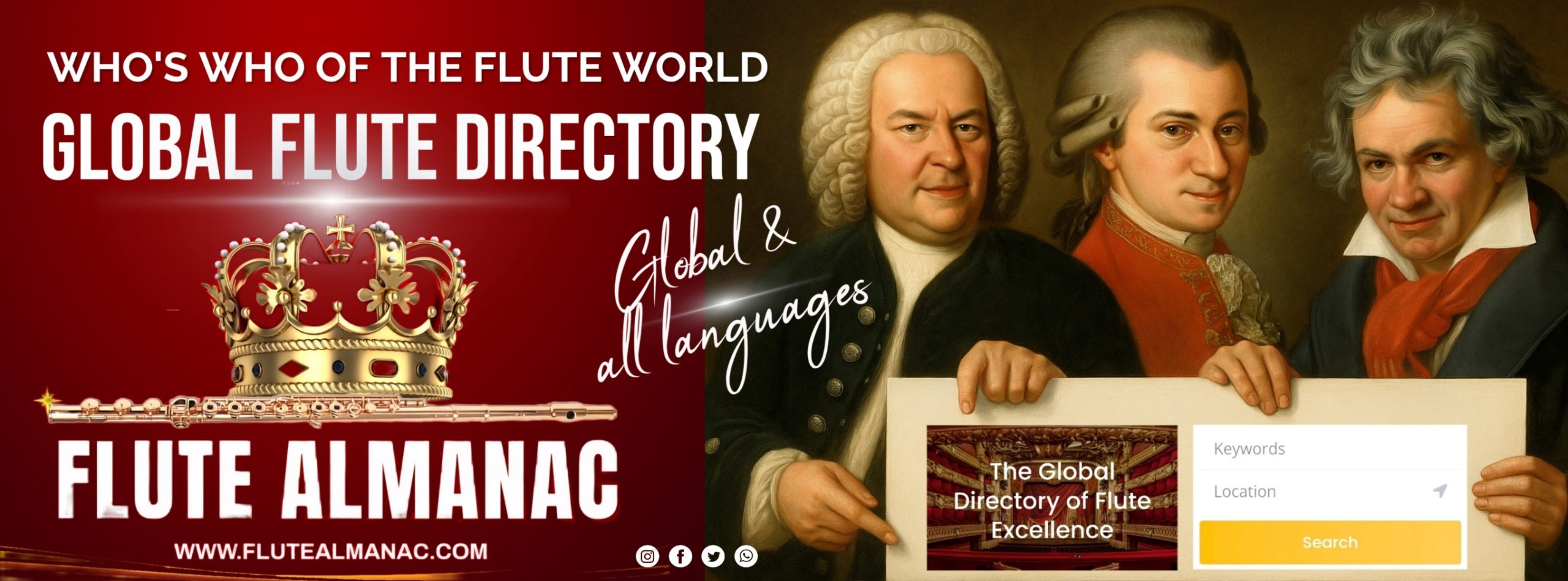
“Speed” or “Velocity” is the dream of every flutist or player, because speed is a dazzling skill with a great appeal on listeners.“Speed” depends – mostly – on the mechanical action of our fingers. So, at first, we must exactly know what “fingers action” means.
On the flute, the fingers do two different, contrary actions:
• closing action;
• opening action.
So, it’s clear that our muscles work in a different way, when fingers close or open the tone holes.
For a good speed, it’s very important to do this different action clearly. Now, I play an exercise… at first I play it normally, let me say “instinctively”.[Exercise n. 2 from “Daily Exercises” by Mathieu-André Reichert]
If we want add more speed, what we normally do? We try to play faster and faster….But this is a wrong way, a bad method, because our speed probably will be not clear, not regular, and we’ll quickly reach our speed limit.
There is another way which allows us to increase our speed more and more, and very clearly too. I show you…At first, we must learn to move our fingers–each finger –very fast in the single movement from one note to other. Like in the movements of martial arts: from the absolute rest –immediately –to high speed performance. This is very important to understand. In this way, a faster speed will not depend on a faster movement of our fingers, but on the progressive reduction of the rest time from a movement to other. Is it clear? This is the best approach to increase our speed. A second question: we must put regularity to the fingers action.
Rhythm variants are very helpful for this, because they add strength and agility to our muscles. Ten variants: we must play each variant with a fast finger action, even in a slow tempo. Check our fingers action… repeat more times the passage when the finger action is not good. Now, playing the exercise fast is not a problem for us!
Onorio Zaralli
Onorio Zaralli si diploma con il massimo dei voti in flauto presso il Conservatorio di Musica “S. Cecilia” di Roma, conseguendo successivamente il diploma “solista” al Royal College of Music di Londra. Premiato nei concorsi di Ancona, Stresa, Palmi e Città di Castello, matura esperienze orchestrali in seno all’Orchestra della Radiotelevisione di Bucarest, Orchestra Sinfonica di Sanremo, Orchestra Sinfonica dell’Accademia Nazionale di S. Cecilia di Roma. Come solista, è attivo in Europa, USA, Messico, Korea, Australia. E’ autore di libri, studi e composizioni per flauto.








Credo che il concetto dello “scatto” possa aprire una nuova strada per acquisire la tecnica della velocità.